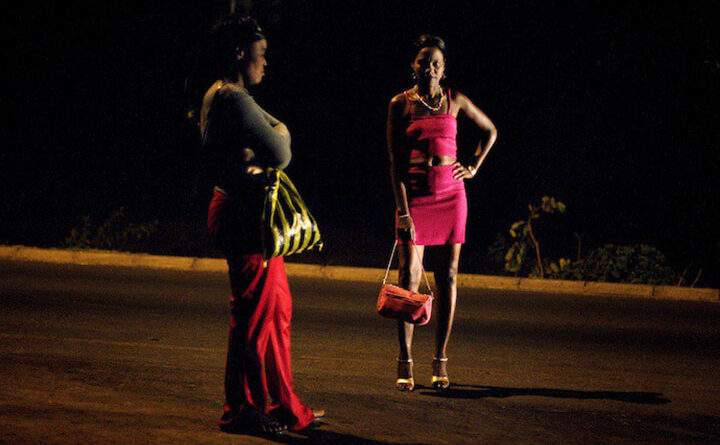Economic Desperation Pushes Zimbabwe’s Girls Into Hidden Sex Trade
As Zimbabwe’s economic hardship deepens, more young girls — some barely in their teens are being drawn into sex work, a trade defined by secrecy, exploitation, and survival, as fractured families and vanishing opportunities leave them with few choices.
Despite its growing visibility, sex work remains socially condemned and legally restricted.
Many sex workers say they live in fear and isolation, hiding their profession from loved ones and relocating far from their home communities to avoid stigma.
“We don’t want our children to know what we do, and we don’t want them joining us,” said one sex worker during a media tour organised by the National AIDS Council (NAC) in Masvingo.
Although often referred to as the world’s oldest profession, sex work is not formally recognised in Zimbabwe and is rarely accepted as a legitimate livelihood.
Parents do not view it as a career path, especially when compared to professions like teaching or nursing.
Survival in the trade is typically hand-to-mouth, with little room for long-term productivity or stability.
The surge in sex work is largely driven by poverty, unemployment, and limited access to education. Some girls are coerced or trafficked into the trade, while others are influenced by peers or social networks.
According to ManicaPost, family breakdown due to parental loss or neglect is another major factor pushing young girls into the streets.
In 2016, more than 200 Zimbabwean women were lured to Kuwait under false job promises, only to be forced into sex work. Though they were later repatriated by the government following public outcry, many suffered lasting trauma.
The incident highlighted the vulnerability of women seeking economic opportunities abroad.
Sex workers face daily risks, including harassment, abuse, and arrest. Although Zimbabwe’s laws do not explicitly criminalise sex work, authorities often use the Criminal Law (Codification and Reform) Act to detain and prosecute those involved.
The law, which replaced the Sexual Offences Act in 2007, remains a tool for targeting sex workers.
Married individuals who engage in sex work present a unique set of challenges.
They often operate in secrecy to avoid losing their partners and face heightened health risks, including the transmission of HIV and other STIs.
In polygamous families, the consequences can be even more severe, as the risk of spreading infections multiplies.
The sex trade in Zimbabwe is diverse.
Some workers operate on the streets, while others are brothel-based or work as escorts in private settings.
A growing number now use online platforms such as WhatsApp, Facebook, and TikTok to attract clients.
Men, women, transgender individuals, and members of the LGBTQ+ community are all represented in the trade, with some forced into it through trafficking or coercion.
Cultural and religious beliefs continue to shape public attitudes toward sex work. It is often viewed as immoral or sinful, leading to social exclusion and limited access to healthcare, education, and legal protection.
Sex workers are frequently marginalised and blamed for the spread of diseases such as HIV and AIDS.
In response, several government ministries and civic organisations have launched support initiatives aimed at helping sex workers transition to more stable livelihoods.
The Ministry of Health and Child Care provides access to HIV testing and treatment, while the Ministry of Youth Empowerment Development and Vocational Training, along with the Ministry of Women Affairs, Gender and Community Development, offers job training and educational opportunities.
Through peer support and community outreach, sex workers are encouraged to pursue alternative income-generating projects.
NAC and its partners continue to advocate for economic empowerment and reintegration programs, especially for those seeking to exit the trade.
As Zimbabwe confronts the rising tide of sex work, experts say a multi-sectoral approach is essential to address the root causes and offer sustainable solutions that protect vulnerable youth and restore dignity to those trapped by circumstance.




